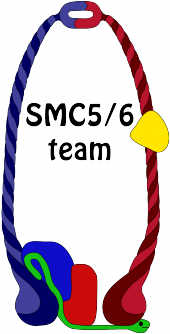The international team was centred mainly at the University Medical Center in Utrecht (Belgium), University of Sussex (UK) and Baylor College of Medicine (USA). “It was in the Netherlands that the doctors discovered one of the cases of the given syndrome, when they found out that two siblings, both aged about one year old, died of a serious pulmonary infection several years apart. So they started searching for a possible genetic cause and found a mutation which could be connected with the deaths. Later it was confirmed by a second case when a family was found with similar history and a mutation of the same gene,” biochemist Jan Paleček described the beginning of the research of the syndrome.
A mutation in the gene causes to produce a wrong protein in the cell. It is part of a protein complex known as SMC5/6, which together with other two complexes is responsible for the fact that genetic information can be stored and saved in cells in the form of chromosomes. “Complexes called condensin, cohesin and SMC5/6 add to the fact that a several-metre-long DNA fits into a cell of the size of several micrometres. If they don´t work, chromosomes can get damaged,” Paleček said.
In the case of this genetic syndrome the complex SMC5/6 doesn´t hold together, chromosomes break and in this way the organism´s immunity decreases. Then it cannot deal with a pulmonary infection. “We have helped our colleagues to clarify how the damage of protein influences its properties,” Paleček said and added that the research of the syndrome took several years.
It is quite a frequent mutation in the Netherlands, three people out of a thousand have it. Its occurrence with Europeans is generally lower. “But it is a mutation which doesn´t have to appear. The thing is, that both parents have to have the mutation and both mutations have to be transferred to their offspring,” Paleček emphasized and added that both affected families also have several healthy children.
There is no prevention or treatment against this unique disease yet. For example with the family from the United States there is a different part mutated in the gene and it has even worse influence on the function of the protein complex. The authors of the study hope that the publication of this discovery will help medical doctors to identify other cases of this syndrome. “If Czech doctors have come across similar deaths of children in their practice, we can help them carry out a genetic analysis of family members and in this way discover the cause of the child´s death retrospectively. Further our aim will be to investigate the syndrome deeper and possibly reveal others which are caused by the damage of chromosomes in human cells,” Paleček added.
Change institution
- About Institution
- Research
-
Core Facilities
- CEITEC Nano Research Infrastructure
- Biomolecular Interactions and Crystallization
- X-ray Diffraction and Bio-SAXS Core Facility
- Nanobiotechnology Core Facility
- Josef Dadok National NMR Centre
- Cryo-electron Microscopy and Tomography
- Proteomics Core Facility
- Plant Sciences Core Facility
- Cellular Imaging Core Facility
- Genomics Core Facility
- Multimodal and Functional Imaging Laboratory
- PhD School
- News/Events
- Contacts








